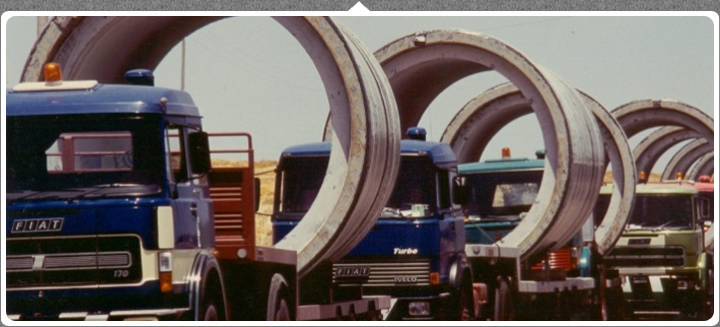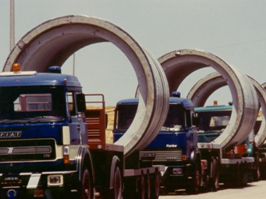
There are two types of prestressed concrete pipes: those with a steel cylinder core and those with a concrete core. The former are referred to as ‘cylinder pipes’ and those with longitudinal prestressing are known as ‘non-cylinder pipes’. The latter are formed by applying a cement-rich mortar coating to the pipe walls by pneumatic or mechanical means at high velocity.
Compared with the conventional pipe, the pressure-treated concrete pipes have excellent corrosion and physical damage resistance. The highest pressure capacity and the most durable pipes are the two main characteristics of a PCCP. Typically, these pipe types are used in wastewater and industrial piping applications. They are also significantly more cost-effective than coated or lined ferrous piping. And because of their durability, they are available in a wide range of diameters.

As with any concrete pipe, there are many different types. A cylinder-shaped pipe, for example, has a rounded end that provides strength in the case of a failure. A non-cylinder pre-stressed pipe has the following specifications: a helix-shaped core, a round OD, and a length of five inches. A helix-shaped steel cylinder is also used in this type of piping.
The most important feature of PCCP is that they can be manufactured to order. As a result, they are often designed to meet specific requirements for internal pressure and external loading. That means that the customer doesn’t have to pay for additional strength that is not needed. Further, they are typically cost-effective as well. And that is why PCCPs are becoming more popular every day. And as they have become more common, there’s no need for extra reinforcement.
A PCCP has a high rate of premature failures. However, the engineering standards have improved over time. The newer PCCP design standards include minimum and maximum diameters. They are also characterized by their high durability and low cost. They are widely used for a variety of applications, including water pipes, and are the best option for most projects. They are flexible and durable. They are also highly customizable.
The design of a P.S.C pipe can be optimized depending on internal pressure. By considering various parameters, the cost of the pipe can be made affordable. Moreover, they are ideal for a wide range of applications, which include a variety of applications. These products have become very popular in recent years and have become a reliable option for a wide range of customers. They are an excellent choice for a variety of uses.
There are two types of PCCP. The first is called a cylinder pipe, and the lining is made of concrete. The second is called an embedded cylinder pipe. This type has a concrete core, and the steel cylinder is wrapped in a steel ring. The cylinder and the pipe are both commonly available in various diameters. Typical PCCP diameters range from 16 inches to 60 inches.
Recent Articles
- How Drycast Technology is Changing the Concrete Pipe Industry?
- Common Mistakes to Avoid When Selecting Pipe Moulds for Your Machine
- How to Match Your Concrete Pipe Making Machine with the Perfect Drycast Mould?
- How to Keep Concrete Pipe Machine and Drycast Moulds in Top Condition? Maintenance Guide
- Box Pallets & U-Drain Pallets: Essential Components in Modern Drainage Systems





 BACK TO ARTICLES
BACK TO ARTICLES